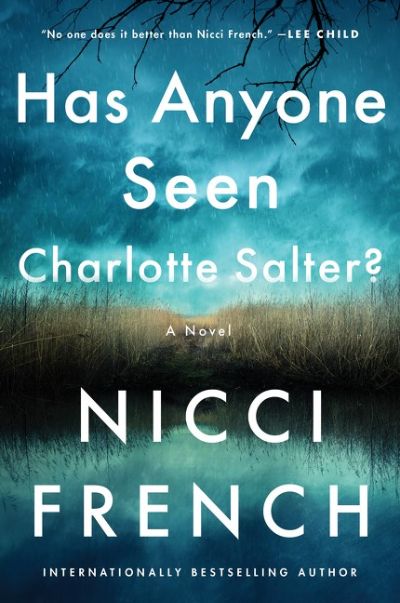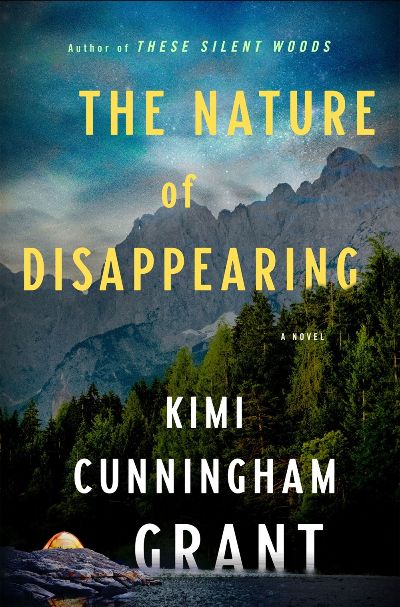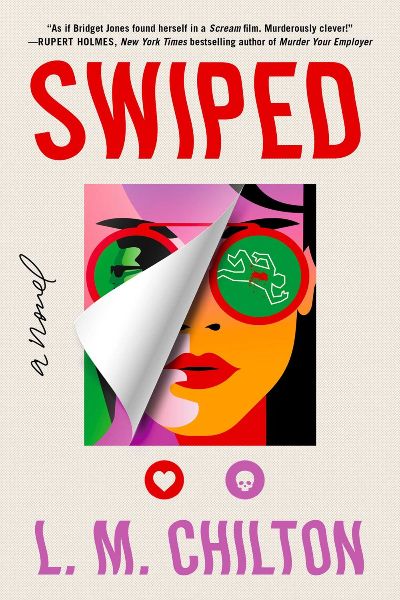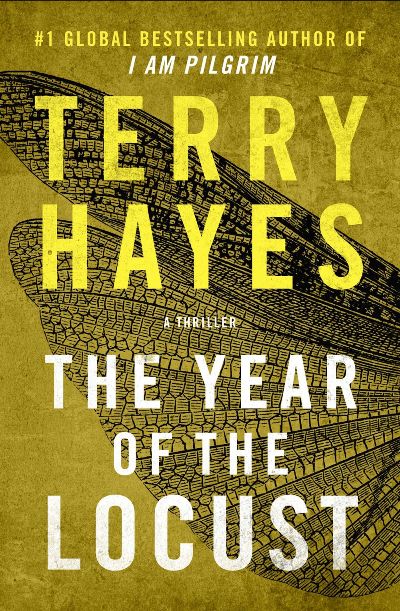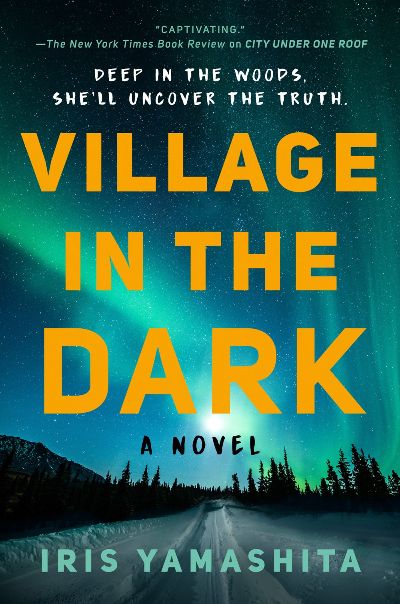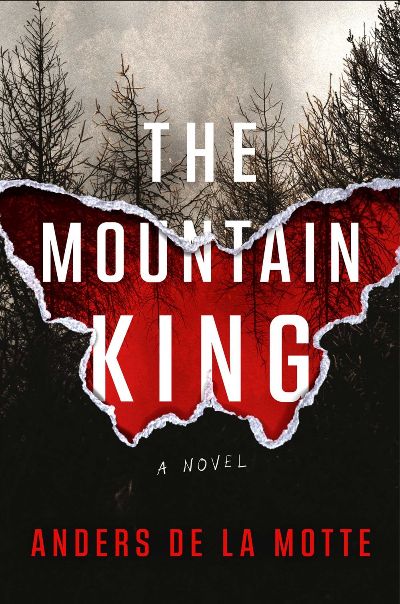A richly drawn, deeply felt novel in which every one of its 544 pages is absolutely enthralling. It’s Alec Salter’s fiftieth birthday—just days before Christmas, 1990—and scores have come together to celebrate, dance, and drink the night away. All except for his wife Charlotte, who planned to attend, but never shows up. While Alec shrugs away her absence, anxiety takes hold of their four children, especially Etty, fifteen years old and the only girl. It’s largely Etty’s perspective we experience, as day follows desolate day and she searches the countryside for her mother. It just tears your heart apart. When, days later, the body of neighbor Duncan Ackerley is found floating in the river—he’s a good friend and possible lover of Charlotte—the police are quick to conclude that Duncan killed Charlotte and then himself. Jump ahead to 2022, when the two Ackerley sons are back home, busy making a podcast about the deaths, the Salters have returned to pack up the family home and put Dad in a nursing facility, and the police have reopened both of the cases. This second part of the novel is driven by Maud O’Connor, a brilliant, young detective inspector obsessed with finding the truth. It’s she who is able to put together the pieces and in turn, the characters as well. A powerful example of crime fiction at its best.
Thrillers
Frankie Elkin finds missing people, most of whom are deceased. She is not law enforcement or a PI; her skills are merely a hobby. But she’s one of the best when someone wants to discover the truth and find closure. Frankie’s summoned to the prison where Kaylee Pierson, the so-called Beautiful Butcher, is on death row, scheduled to be executed in three weeks. The condemned woman asks Frankie to find her missing sister before the lethal injection is administered. The information Frankie receives from Kaylee and Kaylee’s attorney puts her on an undercover mission to a remote island south of Hawaii to work with a small team employed by a tech mega-billionaire. With no technology and no way to get immediate help, Frankie will be stretched to her limits, and what she uncovers will surprise even the most jaded thriller readers. Gardner has a gift for writing about the grim and dark world of crime while focusing on hope and humanity. Taken meets Glass Onion in this terrific novel, and holy cow, the ending! Still See You Everywhere is a perfect place to start if you are not familiar with Frankie, and a fantastic continuation of the series if you have already had the pleasure.
When Emlyn was a little girl and her father left, she dove into the dictionary, studying and learning words as a coping mechanism. Resilience and words are still at the heart of her life; after meeting a person, she works to find the single word that best embodies them. All the while, she’s pushing through a lonely life as a wilderness expert, one who repels the people around her since she broke up with Tyler, the love of her life, and lost her best friend, Janessa, to a bitter argument. Now her worlds are colliding as Tyler needs her help: both Janessa, who now works for Tyler, and Janessa’s renowned outdoorsman partner are missing. Tyler and Emlyn must face the Idaho wilderness to find the couple, a journey that becomes more treacherous as they encounter an unexpected and deadly situation. Social media fame meets the elements here as the past and future collide and form unexpected eddies. Who can be trusted, whether past goodness or evil can change, and how to accept love are dilemmas readers will enjoy facing with Emlyn, a downtrodden character whose troubles are relatable and whose grit when it matters is satisfying. Podcasts and other social media are having a moment in crime fiction now, and wilderness fiction is also big. Here’s a fast, suspenseful tale that combines both and even throws in some romance.
There’s a moment in this story of an English village school shooting when a mother tries to call for her son. “[T]he space left by her inhale was filled with elbows, shoulders, and no words came out,” a description that’s just one of the shivers readers will get from Dean’s unflinching look at horror. But the book’s not really about the shooting itself, though that awful event gets its share of pages. Nor is it about the shooter, though he too gets his due, in a section that readers should know includes a horribly accurate look at a verbally, emotionally, and physically abusive man. Rather, Dean puts her magnifying glass on what happens after, when those who question everything except conspiracy theories move in with their claims that the massacre never happened and the victims never existed. A split-second decision by someone from the small town is later blown up by the right wing and adds interesting shadows to the killer/victims dichotomy. Those who wanted Alex Jones ground to dust will be intrigued by this fuller look behind his kind of rabid cruelty, and fans of Dean’s Girl A and of psychological thrillers are also a great audience for this. A realistic and absorbing look at media gone wrong and the lives it scorches.
Gwen has tossed aside her long-term boyfriend—why she dumped him is a bit of a mystery in itself—quit her lucrative job, and is now running a failing food truck. The plan was for her and the boyfriend to head off to festivals over the U.K., dispensing coffee. Instead, Gwen is moping about, drinking too much lousy wine, helping her roommate/best friend prepare for her wedding (barf!), doing absolutely nothing to prepare for living alone, oh, and dating guys off Connector, the “dating app du jour,” at a rather rapid pace. Gwen has a bit of an addiction to Connector, and her hilarious and droll take on men and dating is reminiscent of Phoebe Waller-Bridge’s character Fleabag. Until the most curious thing happens: there’s a series of murders in her town, all of 30-something year old males, and all—you guessed it!—former Connector dates of Gwen. In no time, the cops are in her face (and deep into her Connector account), observing her every move, and generally acting like she’s their number-one suspect. Pluckish Gwen does the one thing she can do: try to solve the murders herself. Anyone who’s taken a dip in the world of online dating will find much to enjoy here, while everyone will appreciate Chilton’s marvelous tone, dialogue, and humor. Take this wonderful debut on a date, you won’t be disappointed.
They say you can’t go back, but what if the past won’t let go? That’s the case for Sandy Corrigan. She narrowly escaped sex work and now works for her brother as a private detective. It’s not as glamorous as it sounds, with Sandy spending her days chasing cheating husbands and those seeking to milk personal-injury cases. But at least she’s safe—until her former life comes calling. A woman who works for Sandy’s old pimp begs for help when another sex worker, Naomi, goes missing. Naomi’s just a teenager and Sandy’s emotions kick in, as well as her desire for revenge against the abusive, disgusting pimp, Omar. She wraps up the initial part of the case quickly and her brother wants her back to her usual gigs. But Sandy can’t give in when she finds that Omar and his gang are up to much worse than pimping. Sandy is a gutsy but realistic hero, with chase scenes and literal near-death experiences alternating with bathroom breaks—a girl’s gotta pee!—and picking her child up from school. Fast action, snappy dialogue, and empathy galore add up to a quick read, and with an 11th-hour twist, this book keeps on giving right till the last page. I hope for more from PI Corrigan.
The eagerly awaited new thriller from the I Am Pilgrim author, Terry Hayes, delivers an immersive experience. At 800 pages, it takes a slow-build approach and provides a meandering layout to the storytelling, creating an almost memoir-like atmosphere. An alphabet-agency asset learns of an upcoming attack that has shattering implications. Kane, a spy in the Denied Access Area (also known as ultra-top-secret operations), is assigned to get the information and stop the attack. All he knows is that it will be spectacular and will happen over Thanksgiving week. The assignment goes in unexpected ways, and Kane will put at risk the people he cares about, along with dealing with mental and physical scars, to achieve his objective. The finale combines The Terminator and American Graffiti. Hayes has created an unconventional CIA thriller, but all of the elements work, and readers who loved I Am Pilgrim will find that this one was worth the wait. Don’t let the length intimidate you from reading this book. Hayes has another guaranteed bestseller on his hands.
Here’s a trend out of the U.K.: fun-loving, female serial killers. From doing away with the relatives (Mackie’s How to Kill Your Family) to offing abusive husbands (Casale’s The Best Way to Bury Your Husband) British women are ignoring old school, female solutions like poison or a tumble down the staircase and packing some heat, or, in the case of You’d Look Better as a Ghost, relying on a hammer to the back of the head. Claire, our serial killer and hero, is always planning her next kill, typically of someone who crossed her, starting back in childhood with her murder of her mother, who made Joan Crawford seem like Mother Theresa. Today the 30ish Claire is mourning (a real emotion!) her father’s death, while plotting the murder of Lucas, an arts administrator who rejected one of her paintings. But no sooner is Lucas diced and planted in the back garden—it makes you think twice about the Chelsea Flower Show—when one of the ladies in Claire’s weekly bereavement group let’s on that she knows all about Claire’s special hobby, and if she wants to live, Claire has to give in to blackmail. Is threatening a part-time, but highly successful, serial killer ever a good idea? That would be no. Witty and sophisticated, funny and fast-paced, this dark masterpiece is pure pleasure.
Readers last visited the remote Alaskan town of Point Mettier in Yamashita’s debut, City Under One Roof, (Please note-the link is to a prior firstCLUE review) a title that perfectly describes the town that consists of a single apartment building with 205 residents, stores, and even a bar inside. This time, we are reintroduced to Cara Kennedy, a former Anchorage PD detective, as she’s having her husband’s and son’s bodies exhumed. She can’t stop suspecting foul play even though everyone is fed up that she won’t accept that they died of a hiking accident—she’s even lost her job because of her suspicions. But she’s now found a photo of her dead loved ones on a gang member’s phone. There’s no explanation for it, and her investigation is forcing her to visit the remote village of Chugach, with a trip through Point Mettier the only way in. Other wronged women are simultaneously facing pain and their paths are destined to meet: Ellie, owner of the Cozy Condo Inn in Point Mettier, gets a devastating call just as Kennedy’s on her way. We also meet Mia, a former Chugach resident who’s trying the outside world for the first time, meeting fears yet forging her way. These are fascinating characters and circumstances, and the story that brings them together and sees them struggling against inner demons, and very real danger, is gripping. For readers who enjoy offbeat tales and wilderness thrillers as well as for fans of the author’s debut.
When 19-year-old Smilla Holst, a member of a wealthy local family, and her ex-boyfriend Malik Mansour disappear without a trace, Detective Inspector Leonore Asker expects to lead the investigation as section head at Malmö’s Serious Crime Command. But she is unexpectedly replaced by Jonas Hellman, a rival detective from Stockholm with a personal score to settle, and relegated to the police headquarters’s basement as temporary chief of the Resources Unit. In this obscure department, nicknamed the Department of Lost Souls, odd, cold cases and odd employees linger in obscurity. But as Asker quickly discovers, her new colleagues display unusual talents that come in handy when she probes a strange case involving a model-railway club and the ominous placement of miniature figurines that represent missing people, including the latest two victims. While Hellman pursues a kidnapping angle, Asker becomes convinced that her Resources Unit predecessor, now hospitalized in a coma, was on the trail of a serial killer who preys on urban explorers who wander into abandoned structures like factories and underground military facilities. The best-selling author of “The Game” trilogy launches an exciting, atmospheric crime series that introduces an appealingly smart and tough female protagonist with a troubled backstory in the vein of Stieg Larsson’s Lisbeth Salander, although not quite as edgy. The twisty, spine-tingling mystery that unfolds is creepy and sinister, laced with a touch of dark Scandinavian folklore.

